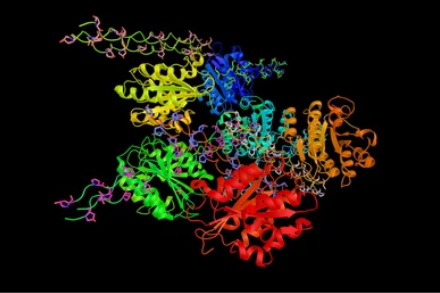Endothelial Cell Differentiation Markers
Related Symbol Search List
Immunology Background
About Endothelial Cell Differentiation Markers
Endothelial cell differentiation refers to the process by which endothelial progenitor cells mature into fully functional endothelial cells. These cells line the interior surface of blood vessels and play a crucial role in maintaining vascular homeostasis.
Several markers are used to identify and characterize endothelial cells during differentiation. Here are some commonly studied endothelial cell markers: CD31 (also known as PECAM-1),VE-cadherin (CD144), von Willebrand factor (vWF), Endoglin (CD105), and Tie-2 (Tek receptor).
Scientists are investigating various aspects of endothelial cell differentiation, including the signaling pathways involved, the role of transcription factors, and the potential therapeutic applications. Additionally, researchers are actively exploring novel markers that can improve the identification and isolation of specific subpopulations of endothelial cells.

Physiological Functions of Endothelial Cell Differentiation Markers
Endothelial cell differentiation markers play crucial physiological roles in the functioning of endothelial cells and the vascular system as a whole. Here are some of the physiological functions associated with endothelial cell differentiation markers:
Vascular Integrity and Barrier Function: Endothelial cell differentiation markers, such as vascular endothelial-cadherin (VE-Cadherin) and platelet endothelial cell adhesion molecule-1 (PECAM-1 or CD31), contribute to the maintenance of vascular integrity and barrier function. These markers are involved in the formation of endothelial cell-cell junctions and are essential for the tight sealing of blood vessels. They regulate the permeability of endothelial cell monolayers, preventing excessive leakage of fluid and molecules from the bloodstream into the surrounding tissues.
Angiogenesis and Vascular Development: Endothelial cell differentiation markers, including CD105 (endoglin) and Tie-2, participate in angiogenesis and vascular development. CD105 is upregulated during angiogenesis and is involved in endothelial cell proliferation, migration, and tube formation. Tie-2, a receptor tyrosine kinase, plays a critical role in angiogenesis and vessel maturation. These markers contribute to the sprouting and branching of new blood vessels, ensuring the proper formation and remodeling of the vascular network.
Leukocyte Extravasation and Immune Response: Endothelial cell differentiation markers, such as PECAM-1 and CD34, are involved in leukocyte extravasation and immune response. PECAM-1 acts as a key mediator of leukocyte transmigration across the endothelium during inflammation. It facilitates the adhesion and migration of leukocytes from the bloodstream to the site of tissue injury or infection. CD34, expressed on endothelial progenitor cells and immature endothelial cells, plays a role in leukocyte recruitment and immune cell interactions.
Blood Coagulation and Thrombosis: Endothelial cell differentiation markers, including von Willebrand factor (vWF) and tissue factor (TF), contribute to blood coagulation and thrombosis. vWF is synthesized and secreted by endothelial cells and plays a crucial role in platelet adhesion and aggregation during clot formation. It also acts as a carrier protein for clotting factor VIII. TF, expressed on activated endothelial cells, initiates the extrinsic pathway of blood coagulation, leading to thrombus formation in response to vascular injury.
Vasoconstriction and Vasodilation: Endothelial cell differentiation markers, such as endothelial nitric oxide synthase (eNOS) and endothelin-1 (ET-1), are involved in regulating vascular tone through vasoconstriction and vasodilation. eNOS is expressed in endothelial cells and catalyzes the production of nitric oxide (NO), a potent vasodilator. NO diffuses to the underlying smooth muscle cells, causing relaxation and vasodilation. ET-1, on the other hand, is a vasoconstrictor peptide produced by endothelial cells and regulates vascular tone in various physiological and pathological conditions.
Modulation of Inflammatory Responses: Endothelial cell differentiation markers play a role in modulating inflammatory responses. They participate in the expression and release of adhesion molecules, chemokines, and cytokines involved in leukocyte recruitment and activation. These markers, such as PECAM-1, VE-Cadherin, and CD34, are critical in orchestrating the interaction between endothelial cells and immune cells during inflammation.
Regulation of Angiocrine Signaling: Endothelial cells produce and release various angiocrine factors that regulate tissue homeostasis, angiogenesis, and organ development. Endothelial cell differentiation markers, including CD105 and Tie-2, are involved in the regulation of angiocrine signaling. They contribute to the expression and secretion of growth factors, cytokines, and other signaling molecules that influence neighboring cells and tissues.
These physiological functions highlight the diverse roles of endothelial cell differentiation markers in vascular biology, immune responses, coagulation, and the regulation of tissue homeostasis. Understanding the functions and regulation of these markers is crucial for comprehending normal vascular physiology and the pathophysiology of vascular disorders and inflammatory conditions.
Available Resources for Endothelial Cell Differentiation Markers
Creative BioMart provides an extensive range of products and tailored services to assist research on endothelial cell differentiation markers. Our offerings include recombinant proteins, cell and tissue lysates, protein pre-coupled beads, antibodies, and more, with the aim of elucidating the mechanisms underlying their functions.
In addition, we offer comprehensive resource support, encompassing involved pathways, protein functions, interacting proteins, related research areas, relevant articles, and other resources related to endothelial cell differentiation markers. This is designed to enrich the understanding and exploration of the functions and regulatory mechanisms of these vital molecules.
Explore the endothelial cell differentiation markers below to access more comprehensive resources.
We are dedicated to providing you with high-quality research tools and services to help you achieve successful scientific outcomes. If you have any further questions or require custom services, please feel free to contact us at any time.

